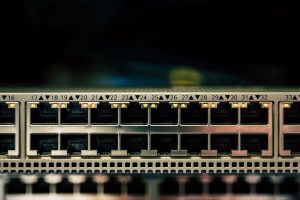It’s a short post this one, but in the interest of using the blog as a reference for myself it’s an important one to put up.
I am in the process of building out a new lab for some learning, “to see the real thing” as well as some more content for the site. I am going to be borrowing a little space, power and bandwidth from my parents for a real world HCX lab.
It’s great that I can test and learn all the products on my workstation, but being able to extend one of my lab network’s over the internet (I hope) and actually see this happening in the real world will be awesome.
There is no guarantee that this will work at this stage, but nothing ventured nothing gained, I could hit issues with MTU sizing for example, but it’s worth a shot.
I am using an “old” desktop PC of mine that has been collecting dust for some months now. Plan is to install ESXi, run a vCenter server on the PC managing the ESXi server it is sitting on. There would also be NSX-T installed as I want to use this as the target site. If this work’s in the blog post I’ll create a few diagrams for reference as well.
I have ran ESXi on this desktop PC for a long time, for the most part it is stable but on the odd occasion I get caught with a PSOD. While it is sat just behind me in the home office that is not too bad, while it is remote though, that poses an problem for me.
Luckily, I may have found a way to mitigate this a little. I have found advanced configuration options, that once configured should automatically reboot the host.
Implement this be first enabling and connecting to the host via SSH. The following command will return the current value that is configured for reference – in case you want to revert back.
esxcfg-advcfg -g /Misc/BlueScreenTimeout
In my case the output of this command is below.
[root@CORSAIRESX:~] esxcfg-advcfg -g /Misc/BlueScreenTimeout
Value of BlueScreenTimeout is 0
Based on my experience with the PSOD on this PC 0 means that the host will not reboot, the feature is disabled. Running the below command will ensure that the host reboots automatically following a PSOD event after 120 seconds.
[root@CORSAIRESX:~] esxcfg-advcfg -s 120 /Misc/BlueScreenTimeout
Value of BlueScreenTimeout is 120
I have not yet experienced a PSOD with this enabled, so I cannot say for sure if this works but I will be sure to update this article if it does for reference.




Allan Kjaer
You can use this command to test this.
vsish -e set /reliability/crashMe/Panic 1
that will create an PSOD on the ESXi host, I have used this for demo and testing.
Ben Turner
Thanks so much Allan for sharing this, I test this using your example to generate a PSOD and it worked perfectly.